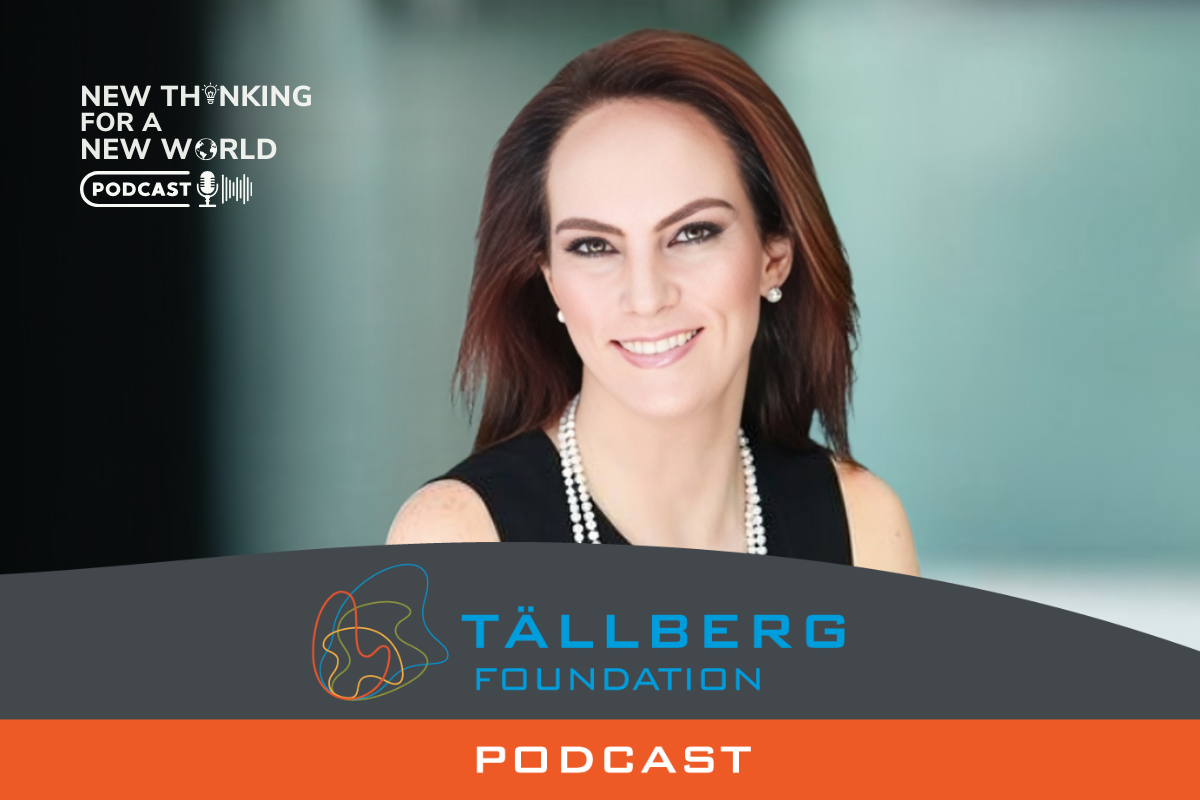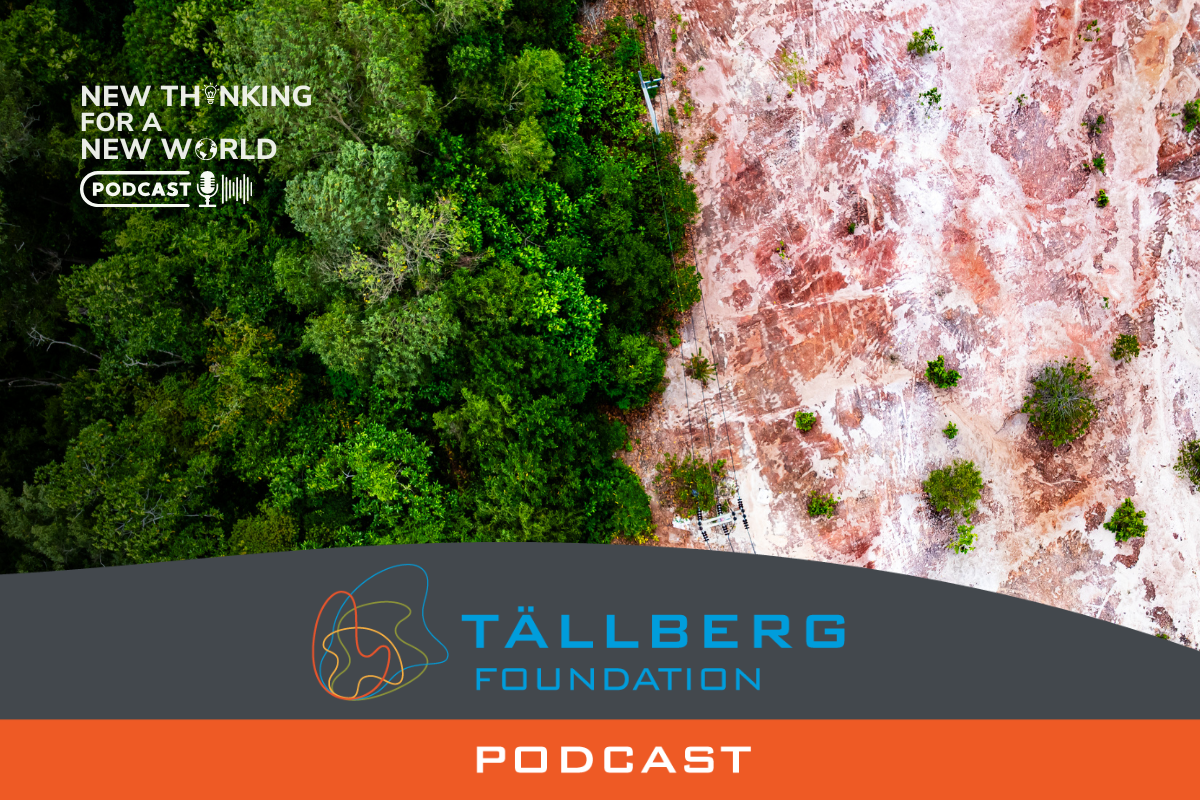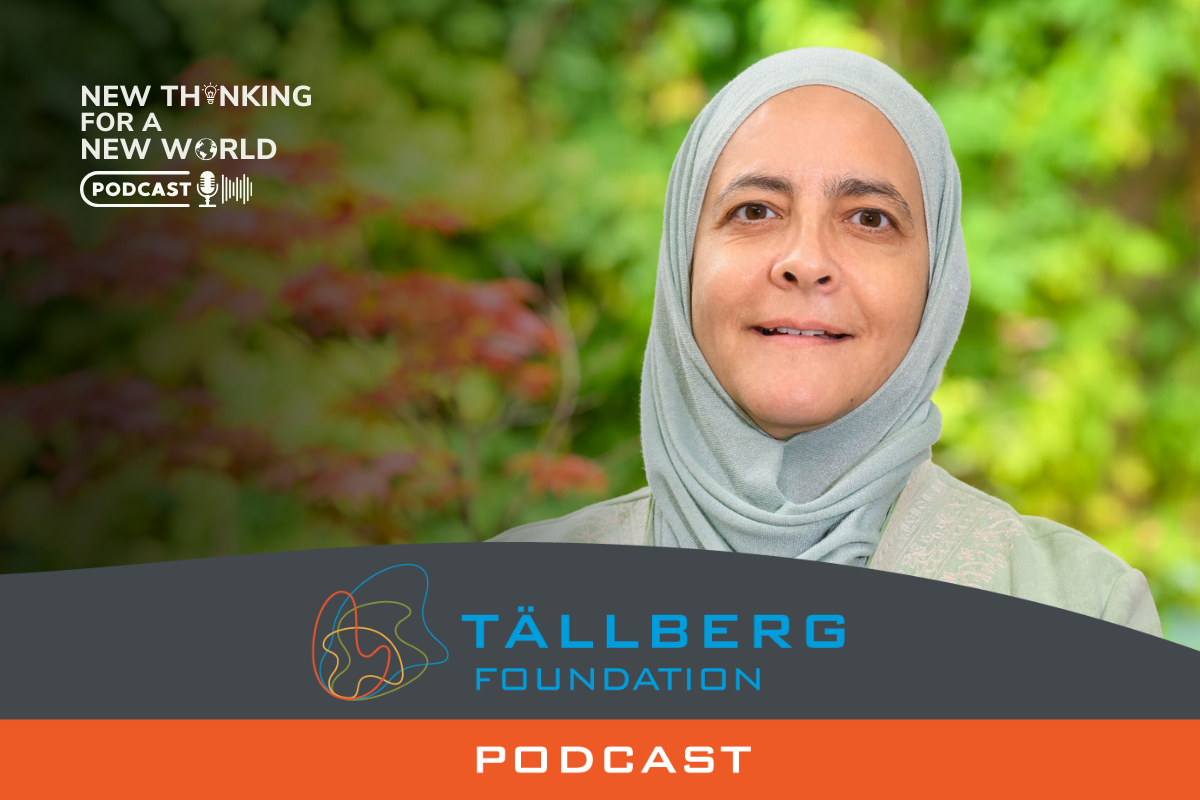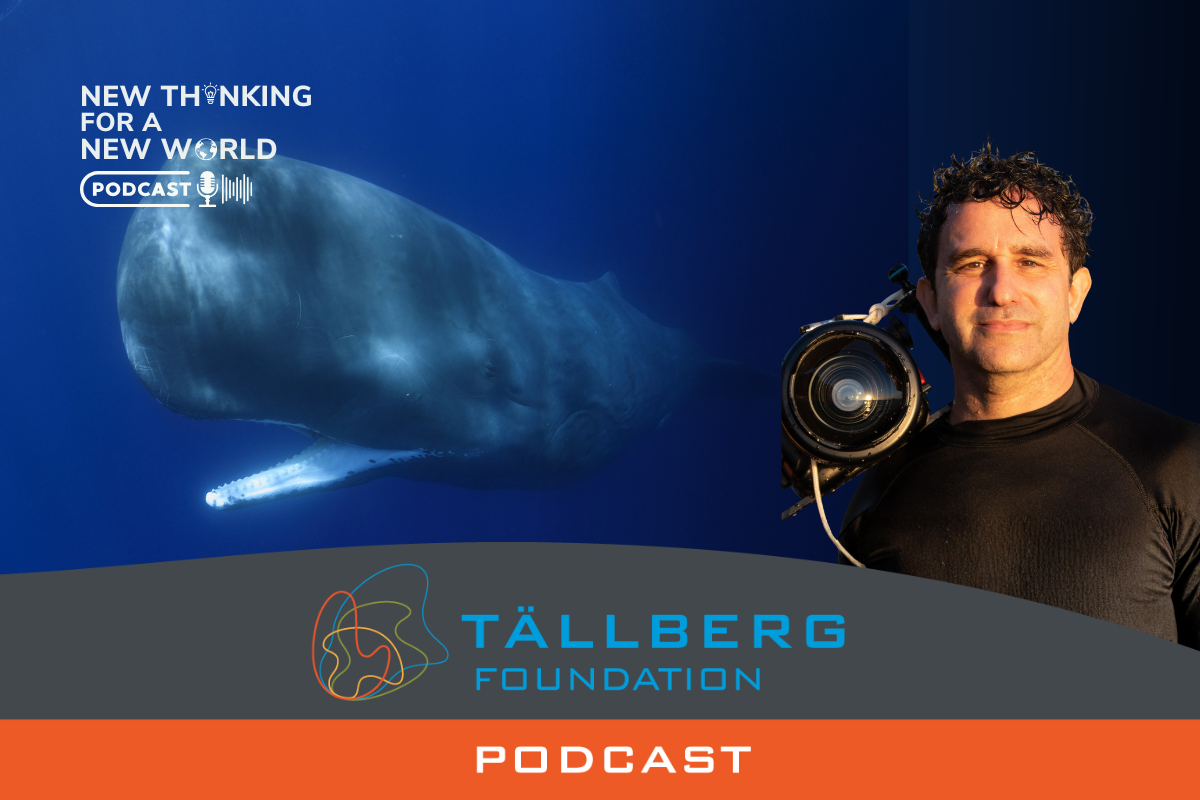Tero Mustonen is a climate scholar who combines indigenous knowledge with academic research. Listen to his insights on how to promote positive change on a damaged planet.
 Tero Mustonen, President and Co-Founder of the Snowchange Cooperative, Finland
Tero Mustonen, President and Co-Founder of the Snowchange Cooperative, Finland
Despite its green global image, Finland has long relied heavily on the exploitation of Nature for income and debt repayments; Tero Mustonen is working to close that gap by smashing accepted Finnish norms and creating new realities. Mustonen is an academic, an activist and the President of Snowchange Cooperative, an organization that leads landscape-scale rewilding projects. He works to protect and restore the unique biocultural diversity of Arctic regions in the face of climate change in solidarity with the region’s Indigenous peoples. He is a vocal advocate for Finland to take a role in progressive, climate leadership while his role as a lead author in the most recent assessment of the Intergovernmental Panel on Climate Change (IPCC) is bringing global prominence to how Finland and other Arctic nations can meaningfully contribute to global climate efforts. He is also the head of the village of Selkie, North Karelia, Finland.
Rapidly accelerating climate change is uniquely modern — but climate change is not. The planet has warmed and cooled in the past, even during mankind’s time. What can we learn from those events that might help us cope with the extremes that are our present and future? Can indigenous people who understand nature differently than most of us teach us how to cope with today’s terrifying challenges?
This week’s guest, Tero Mustonen, is a climate scholar who combines indigenous knowledge with academic research. He is also a leader of the Snowchange Cooperative that works with indigenous people and climate issues throughout the Arctic, and currently the head of his town of Selkie in North Karelia, Finland.
Listen to his insights on how to promote positive change on a damaged planet.
Let us know what you think and comment below.
Click on the button to listen to the episode or find us on a podcast platform of your choice, (Apple podcast, Spotify, Acast, Stitcher, YouTube, etc)




Thank you for the opportunity. Yes I believe we can unearth solutions to the climate challenge? There is also a lot we can learn from indigenous people, because they have experience and they can share with us all. If my mind serves me right, because of my age I will be able to make a contribution through experience. Comparing the time we were young to the current situation with regards to climatic conditions, it is realized that there is a complete change. At the early days, from June, July and August, we used to experience heavy rains and September, October, November, December and January we experience dry weather ; but the story has changed now and in Ghana, Africa currently in September it is raining heavily. I believe it is all due to climatic change as a result of global warming due to Carbon Monoxide (CO) release to the atmosphere as a result of the burning of fuels from our exhaust of our cars and others. The Carbon Monoxide, which eventually will turn into Carbon dioxide (CO2) by reacting with the oxygen from the atmosphere. This Carbon dioxide can then be removed from the atmosphere through the process of photosynthesis of plants, using chlorophyll of the plant and sunlight. Through photosynthesis, food for plant will be produced and also Oxygen will be released which eventually helps in the respiration for human being. So in Ghana the Environmental Protection Agency (EPA) is encouraging the citizens to plant trees in order help maintain the ecosystem. Also in Ghana there is now assembly of electric cars, using solar energy to power batteries on cars, which will help reduce pollution of the environment by Carbon Monoxide.
I also believed that there is much we can learn from Indigenous people. Here in Pawalan, Philippines students conducted a study on the sustainable practices of the Indigenous people and the result was also good.
As to the root cause of climate change, I posited that the root cause of climate change is “Man’s desire to satisfy his unlimited and ever changing wants”. Satisfaction of these wants necessitates utilization/consumption of goods and services. Goods and services need to be produced before it can be consumed or enjoyed. It is in the performance of the activities from resource extraction up to the disposal of wastes that so much energy is necessitated, GHGs emitted, pollutants and other wastes generated and a complex, interconnected, interrelated, multifaceted, multidimensional and exponential environmental destructions. Describing climate change as the long term consequence of widespread and continuous environmental destructions that cause ecological disturbances which result to ecological imbalances and end up to global warming. The Most Appropriate, Immediate, Effective, Massive and Encompassing mitigation lies in each and every able individual’s hands through the application of the cocept “MAXIMIZE to MINIMIZE”, (that is, maximize the use of almost everything one has to minimize environmental destructions) in the performance of the activities from the time he gets up in the norning up to the time he lays down to rest at night. One should note that, every product, every resource, every activity, every sub activity every process and every sub peocess is an entry point for mitigation. Mitigation needs to be applied hand in hand with adaptation if mankind is really serious in providing solution to climate change.
His vision is worthy of emolution;the generation need to follow suit;there is an urgent need to do something about how we can keep this climate clean;thats all we have for our survival;keep the good works up;our GreenTrainAfrrica NGO;Antwerp-Belgium is open to work with you sencerely;we are advocate of cleanclimate;stimulating awareness in africa especially;yearning to hear from u wholeheartedly